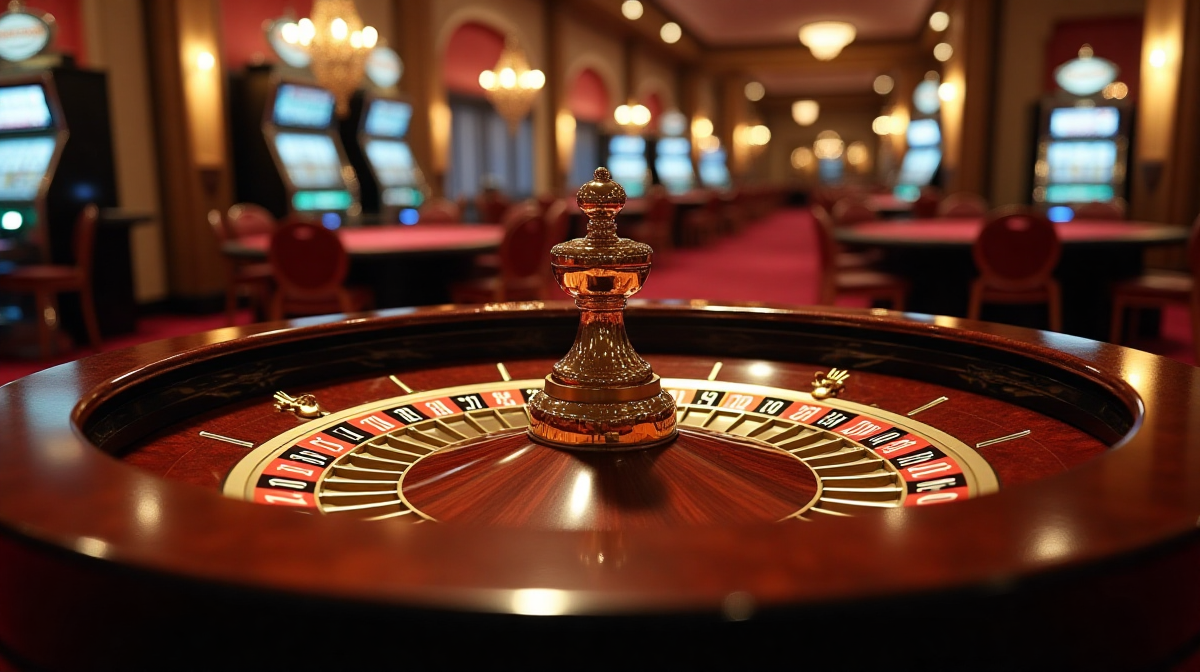Car Roulette Tricks: Are They Real? (2024)
What is Car Roulette? Defining the Trend & Its Origins
Car Roulette is a relatively new and increasingly popular trend, largely fueled by social media platforms like TikTok and Instagram. It involves a potentially risky method of purchasing a vehicle – essentially leaving the final price up to chance. The core concept revolves around individuals or groups setting a minimum bid and then employing a randomizing element, such as a dice roll or a random number generator, to determine the ultimate sale price. While often presented as a fun and unconventional way to buy a car, the practice raises significant legal and safety concerns. The spirit of Fairplay seems absent in many instances of this trend.
The Appeal of Car Roulette – Why is it Popular?
The allure of Car Roulette is multifaceted. For some, it’s the thrill of the gamble, the potential to secure a vehicle for a significantly lower price than market value. This is particularly attractive to younger buyers or those with limited financial resources. Social media plays a crucial role, showcasing “success stories” and creating a sense of FOMO (fear of missing out). The viral nature of the videos depicting these events further amplifies the trend. The perceived novelty and the element of risk-taking are key drivers of its popularity. Individuals looking for a quick win might even seek out platforms like fairplay club 1 hoping to apply similar “luck-based” strategies.
Disclaimer: The Risks Involved – Legal and Safety Concerns
Before delving deeper, it's crucial to understand the inherent risks. Car Roulette operates in a legal gray area, often skirting established consumer protection laws. The lack of a formal agreement and the reliance on chance can lead to disputes and potential fraud. Furthermore, the pressure to bid quickly and the excitement of the event can lead to impulsive decisions and the purchase of vehicles with hidden problems. Safety concerns also arise, especially in scenarios involving “street takeovers” or public gatherings.
Exploring the Popular Techniques
The Reverse Auction Method - How it Works & Potential Pitfalls
One common technique is the reverse auction. A seller establishes a starting price, and bidders progressively lower their offers. A random element then determines the winning bid. The pitfall here is that the “winning” bidder may end up paying far more than the car is actually worth, particularly if they get caught up in the bidding war. The lack of a thorough inspection before the final price is determined is a major drawback.
Blind Bidding – The Rules & What Users Report
Blind bidding involves participants submitting sealed bids without knowing what others are offering. A random element then selects a winning bid. Users report a high degree of anxiety and uncertainty with this method. The potential for manipulation is also present, as the seller might influence the random selection process. Some even try to use “systems” claiming to predict outcomes, searching for car roulette game tricks online, though these are largely unsubstantiated.
Using Dice/Random Number Generators - A Closer Look at the Process
This is perhaps the most straightforward method. Participants roll dice or use a random number generator (RNG) to determine the final price. While seemingly fair, the RNGs used are often not verifiable, raising concerns about their randomness and potential for bias. The use of dice, while simple, can still be manipulated.
Utilizing Online Platforms & Apps Advertised for Car Roulette
Several online platforms and apps have emerged, claiming to facilitate Car Roulette transactions. These platforms often lack transparency and adequate consumer protections. It’s important to be extremely cautious when using such services and to thoroughly research their legitimacy. Some users have reported issues with fairplay.1.co.in login and similar platforms, raising concerns about data security and fraudulent activity.
The Street Takeover Variation – Dangers and Legality
The most dangerous variation involves gatherings in public spaces, often referred to as “street takeovers.” These events are not only illegal but also pose a significant risk of accidents and injuries. The lack of regulation and the chaotic environment create a recipe for disaster.
Debunking the Myths & Analyzing the Success Rates
The Role of Psychology - Why People Think They're Winning
The perceived success of Car Roulette is often rooted in psychological biases. The “near miss” effect, where someone almost wins, can create a false sense of optimism. Confirmation bias also plays a role, as people tend to focus on success stories while ignoring failures. The adrenaline rush associated with the gamble can further cloud judgment.
Statistical Analysis – Are the Odds Truly Random? Examining Bias & Manipulation
A close examination reveals that the odds in Car Roulette are rarely truly random. Sellers often manipulate the process to their advantage, either through biased RNGs or by strategically setting the initial price range. The lack of independent oversight makes it difficult to verify the fairness of the process.
Common Scams Associated with Car Roulette – Red Flags to Watch Out For
Several scams are prevalent in the Car Roulette world. These include undisclosed vehicle defects, inflated mileage readings, and fraudulent title transfers. Red flags include pressure to act quickly, refusal to allow a pre-purchase inspection, and requests for payment via unconventional methods.
Case Studies: Real-Life Examples of Car Roulette – Successes and Failures
While anecdotal evidence abounds, a pattern emerges. “Success stories” often involve vehicles with pre-existing issues that were not fully disclosed. Failures typically result in buyers overpaying for vehicles or ending up with lemons. The pursuit of a bargain, sometimes fueled by discussions around a roulette whisky review as a symbol of perceived luck, often blinds buyers to potential problems.
Expert Opinions – Automotive Professionals Weigh In
Automotive professionals overwhelmingly advise against participating in Car Roulette. Dealerships emphasize the importance of thorough inspections, vehicle history reports, and secure financing. Mechanics warn about the potential for hidden mechanical issues and the lack of warranty coverage. They also highlight the importance of Fairplay in a legitimate transaction.

Navigating the Legal Gray Area
Legality of Car Roulette – State-by-State Overview
The legality of Car Roulette varies by state. In many jurisdictions, it falls into a gray area, as it doesn't neatly fit into existing consumer protection laws. However, practices like false advertising, odometer fraud, and reckless endangerment are illegal regardless of the method of sale.
Contractual Issues – Validity of Agreements Made During Car Roulette
The lack of a formal, written contract is a major legal vulnerability. Agreements made during Car Roulette are often considered unenforceable, leaving buyers with limited recourse if something goes wrong.
Insurance Implications – What Happens if an Accident Occurs During or After?
Insurance coverage can be complicated if an accident occurs during or shortly after a Car Roulette transaction. Insurers may question the validity of the sale or deny coverage if the vehicle was sold illegally or with undisclosed defects.
Potential Criminal Charges – Fraud, Reckless Driving, etc.
Sellers who engage in fraudulent practices, such as misrepresenting the vehicle's condition or falsifying the title, could face criminal charges. Participants in “street takeover” events could also be charged with reckless driving or endangering public safety.

Finding a Car Without the Risks
Traditional Car Buying Methods – Negotiation Best Practices
The most reliable way to buy a car is through traditional methods, such as visiting dealerships or working with a reputable broker. Negotiation is key, but it should be based on research and a clear understanding of the vehicle's market value.
Online Car Marketplaces – Benefits and Due Diligence
Online car marketplaces offer convenience and a wide selection. However, it's crucial to conduct thorough due diligence, including obtaining a vehicle history report and scheduling a pre-purchase inspection.
Certified Pre-Owned Vehicles – Advantages & Peace of Mind
Certified Pre-Owned (CPO) vehicles offer additional peace of mind, as they have been inspected and reconditioned to meet specific standards. They also typically come with a warranty.
Utilizing a Car Buying Service – Expert Assistance and Negotiation
Car buying services can handle the negotiation process on your behalf, saving you time and potentially money. They also have access to resources and expertise that individual buyers may lack.
Private Party Sales – Tips for a Safe and Successful Transaction
Private party sales can offer good deals, but they require extra caution. Always meet the seller in a public place, inspect the vehicle thoroughly, and obtain a bill of sale.
Conclusion
Is Car Roulette Worth the Risk? – A Final Verdict
In most cases, Car Roulette is not worth the risk. The potential for legal complications, financial losses, and safety hazards far outweighs the potential benefits. The lack of transparency and the reliance on chance make it a highly unpredictable and potentially damaging way to purchase a vehicle.
Responsible Car Buying – Prioritizing Safety, Legality, and Due Diligence
Responsible car buying involves prioritizing safety, legality, and due diligence. Take the time to research your options, inspect the vehicle thoroughly, and understand the terms of the sale. Avoid impulsive decisions and be wary of deals that seem too good to be true. Maintaining a commitment to Fairplay is paramount.

